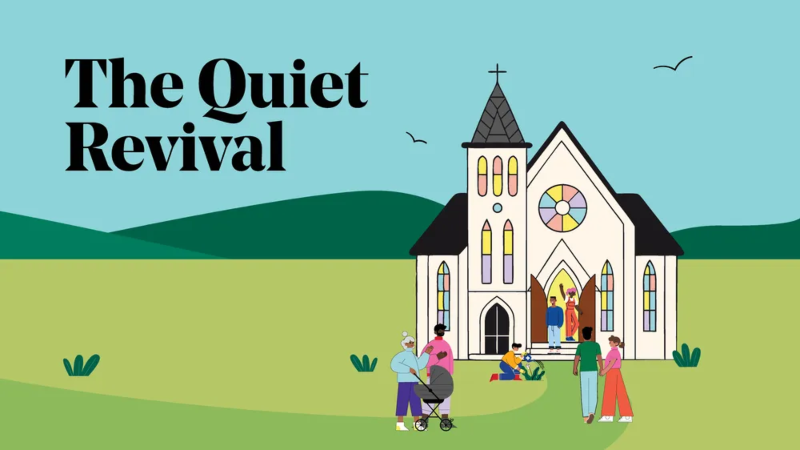'Work out what it says to your own contexts'
Mark Woods is a Baptist minister and head of communications at Bible Society, which produced The Quiet Revival. He offers this reflection on what it is saying, and encourages careful reading of the report

For most of my time in Baptist ministry – nearly 40 years now, 16 of which I spent as a pastor – the prevailing story for our churches has been one of numerical decline. Of course, it goes back even further than that; our lecturers at college in the ’80s had seen it, and their teachers had too. There were churches that grew, and the Spirit had obviously not abandoned us – I’d like to think that my and subsequent generations of ministers and churches did some good things – but still.
I now work for Bible Society, and was privileged to have a small part in the production of a report called The Quiet Revival, which has turned that story on its head. You can find out more about it on our website and read the report yourself, but here are some of the headlines:
-
In 2018 around 8 per cent of the population of England and Wales were in church monthly. In 2024 it was 12 per cent. That’s an increase of around 2 million.
-
Young adults are leading the way, with an increase among 18–24-year-olds from 4 per cent to 16 per cent.
-
Bible reading and confidence in the Bible have increased since 2018, with 67 per cent of churchgoing Christians reading the Bible at least weekly outside of church (in 2018 it was only half)
-
We also found that churchgoers are far more socially engaged than non-churchgoers, and that churchgoers are far more likely to report much higher life satisfaction than non-churchgoers.
These are extraordinary figures, but they’re supported by an extraordinarily large sample size and by the research teams not only of Bible Society but of YouGov, one of the most respected polling organisations in the UK.
They’re also supported by evidence that it’s hard to dismiss as ‘just’ anecdotal – stories of life and growth, of people coming to faith, public figures identifying themselves as Christians, and – no small thing, for those likely to be reading this article – the largest number of baptisms reported by Baptist churches in ten years.
Furthermore, the growth isn’t limited to particular ethnic groups. There is more growth among minority ethnicities, but there is also growth among White communities as well. This is what it looks like: a broad-based, unspectacular but solid increase in churchgoing in England and Wales.
There has been a change in the spiritual climate, and that’s good to see. And reaction to the report in the mainstream media has been surprisingly positive, with many columnists and opinion-formers reflecting on what its findings mean for society today.
Now of course, there are some caveats. There are plenty of churches still struggling and seeing decline rather than growth. If your church is one of those, that doesn’t mean the report is wrong; it just operates on a larger scale.
Furthermore, we should be clear that the survey measures churchgoing, and some other behaviours like volunteering and Bible reading (both with encouraging results). It doesn’t ask theological or political questions that would allow its findings to be co-opted by particular wings of the Church. My own view, for what it’s worth, is that its findings should be unreservedly welcomed; I think generally speaking people are better off in church than not, and I’m glad so many are finding faith.
But what next? I’d encourage everyone to download the report and read it carefully, perhaps as diaconates or church leadership teams, and work out what it says to your own contexts. There are insights in the report about young people and what they’re looking for from church; gender; wellbeing; mentoring, and much more besides.
At Bible Society, we believe the Bible is a vital part of laying the foundations for growth that’s lasting and transformational. We talk about being ‘Bible confident’ in the head, heart and hands dimensions – and one of the really encouraging things about The Quiet Revival report is that it shows spiritually open people genuinely want to know more about the scriptures. To meet this need we’ve created a fantastic new edition of The Bible Course, our free video series outlining the big story of scripture.
Most of all, though: be encouraged. Not all churches will grow; there’s no magic formula. But the Church in England and Wales is now in a different season, and God is doing something quite unexpected.
The Revd Mark Woods is a Baptist minister and head of communications at Bible Society
Do you have a view? Share your thoughts via our
letters' page.
Baptist Times, 18/06/2025